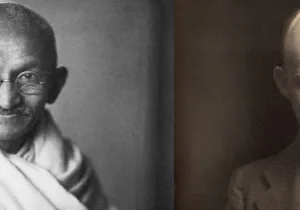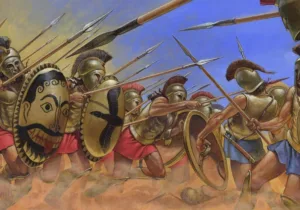“World Community and World Government,” by Reinhold Niebuhr
Another petition has gone to the president, signed by a thousand distinguished people, asking our government to take the initiative in calling a constitutional convention for the creation of a world government. There were not many Christian leaders among the signatories to this petition, which gives one reason to hope that the Christian churches of America are beginning to realize that there is a difference between secular utopianism and the imperatives of the Christian gospel.
A Christian knows, or ought to know, that an adequate Christian political ethic is not established merely by conceiving the most ideal possible solution for a political problem. He must, in all humility, deal with the realities of human nature, as well as the ideal possibilities. He must know that the intransigent elements in every historic situation are derived not merely from the sin of Russia or some other nation, or from the stupidity of statesmen, but from the difficulty which all of us find in conforming our actions to our highest ideals. It is very difficult to establish peaceful and just human communities, because the collective behavior of mankind is even more egoistic than individual behavior; our job is therefore to establish a tolerable community within the limits set by man’s recalcitrance.
The problem of international relations in the present day is that we have minimal bases for an international community and we must extend them; but we cannot create a world government without more communal bases than we now possess. Our modern Utopians are under the illusion that governments create community. The fact is that governments presuppose community and in turn perfect it; but they cannot create it. Communities are created by more organic processes than the fiat of a constitution. They rest upon mutual trust and other forces of cohesion. National communities possess various forces of cohesion such as a common language and culture, common traditions and common concepts of law and morals. The international community lacks all these forms of cohesion. It has only a certain degree of mutual economic dependence, a certain measure of religious and moral sense of obligation transcending the national loyalty; and finally the fear of mutual destruction. This third element has been strengthened immeasurably by the prospects of atomic warfare and has encouraged the hope of some people that we might be able to scare each other into the acceptance of a universal sovereignty. But there is no record of nations coalescing because they feared each other; though some have arrived at a wider partnership because they feared a common foe.
Our immediate situation is that only minimal forms of mutual trust exist between the nations and that there is a particularly deep chasm between Russia and the West. There is no possibility of purely constitutional instruments bridging that chasm if quite a number of other, more provisional bridges are not thrown across it first. Even the proposed abolition of the veto provision in the present charter might do more harm than good. Lest we be tempted to think that only Russia stands in the way of the abolition of the veto, we would do well to remember that the United Nations charter would never have passed the Senate if the veto provision had not been written into it.
What makes American proposals for ideal constitutional solutions particularly vexatious is that we present them to the world even while we prove in our day-to-day policies that we are only beginners in the lessons of international mutuality. We are for world government until it is decided that its headquarters are to be near our ancestral home. We are for world government, but we think the British loan agreement is too generous, proving thereby how little we understand the problems of a very wealthy nation’s relation to an impoverished world.
We demand a complete abridgement of national sovereignty in one moment and in the next we are not certain that our economic power ought to be at least slightly abridged by various types of international accord. Failing to do our full part in establishing the minimal conditions for an international community, we tend to salve our uneasy conscience by presenting the world with an ideal constitutional solution for its problems. It is as if an errant husband, finding difficulty in working out the day-to-day conditions of happy marital life, beguiled his leisure by writing a book on The Ideal Marriage.
This kind of idealism will not do. It is not Christian idealism. Sentimentality never is. Let us strive to fulfill our obligations in the international community more imaginatively as they arise. Let us not forget the starving while we are feasting. We may then in time create the conditions for better constitutional solutions. The future is indeed perilous and it may be natural to try to find some absolute guarantee against another world war. But the peace of the international community is not secured by the logic of constitutional authority, even as no logic of law can maintain the peace of a national community, if more potent factors make for conflict. If we understand this we may give ourselves to our daily responsibilities with the greater devotion.







 Sponsor a student for Christianity & National Security 2024
Sponsor a student for Christianity & National Security 2024